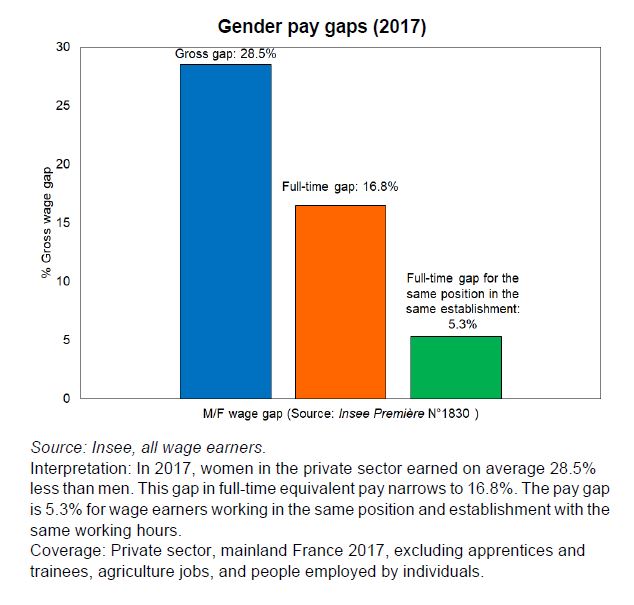Labour Market Discrimination: How Is It Measured and What Is Its Economic Cost?
Discrimination is a difference in treatment based on a prohibited criterion, such as age, origin, religion or sexual orientation. Studies of different kinds confirm the existence of discrimination in the labour market in France. In addition to being illegal, discrimination in the labour market has economic costs for the whole economy. This justifies the existence of public policies aimed at reducing discrimination in the labour market.
The legal definition of discrimination is a difference in treatment based on unlawful grounds such as age, origin, religion and sexual orientation. France's Defender of Rights reports that 80% of people confronted with a situation of discrimination have taken no steps to try to enforce their rights.
Numerous empirical approaches confirm the existence of labour market discrimination based on age, origin, gender, sexual orientation, religion and disability in France. A quarter of all French people say that they have experienced discriminatory behaviour in the last five years. Certain types of discrimination can give rise to inequality in the workplace. For example, women in the private sector earn on average 5.3% less than men in the same position and the same establishment with the same working hours (see chart below).
In addition to being illegal, labour market discrimination generates economic losses. Although it is hard to establish a causal link between worker diversity and business performance, reducing discrimination reportedly brings macroeconomic gains due to a higher degree of integration of groups experiencing labour market discrimination.
There are public policy measures designed to reduce labour market discrimination, such as active measures to reduce inequality of treatment in the workplace (the "Egapro" index) and information campaigns to counter stereotypes. Others are designed to act on the direct repercussions of discrimination, such as board quotas (2011 Copé-Zimmerman Act) and financial incentives to hire people discriminated against for their place of residence (the "emplois francs" programme).
